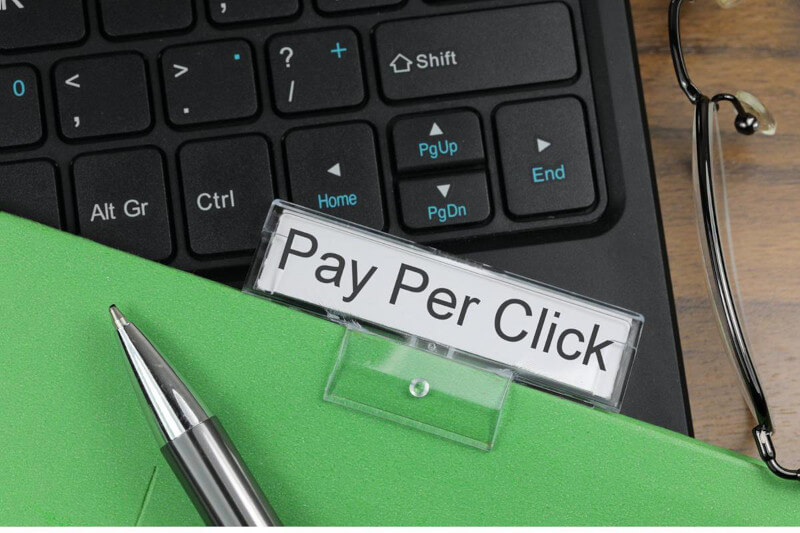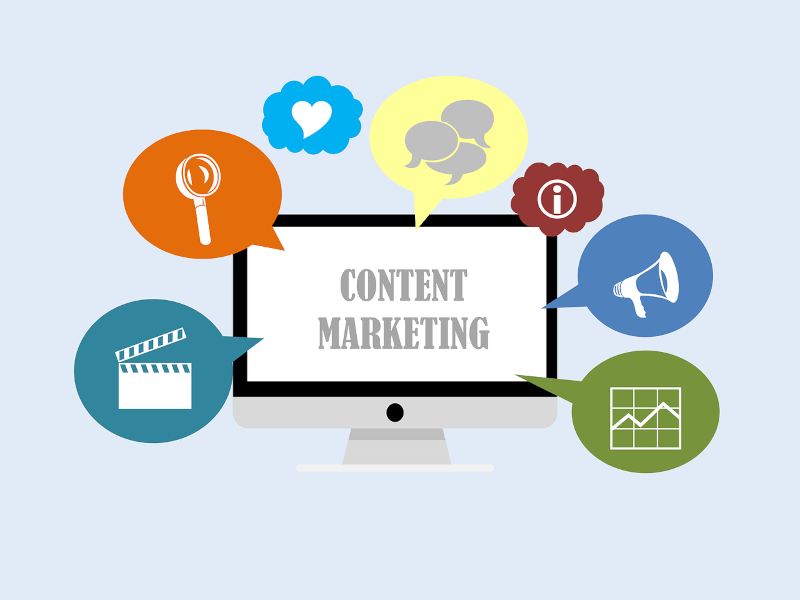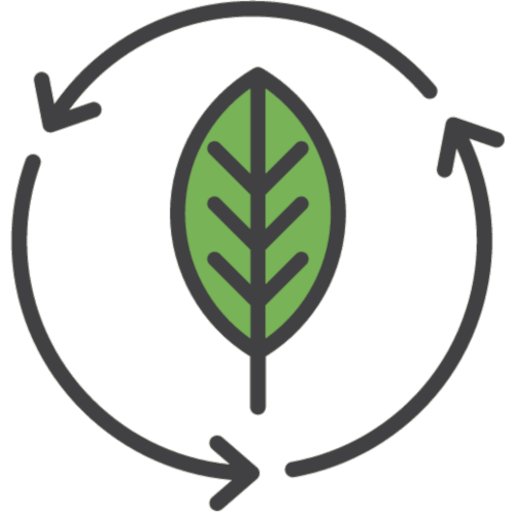In today’s world, your marketing plan can go in so many different directions that it’s enough to make you dizzy just thinking about all of the possibilities. The list could continue on and on: SEO, PPC, email, social, etc. The majority of brands will select a strategy that is a hybrid of a few of these approaches.
What if, like the majority of businesses, you just have a restricted budget to spend? I’m going to demonstrate to you why you ought to prioritize your content marketing strategies with the resources you have available and how I came to the conclusion that content marketing is superior to pay-per-click advertising (PPC) in terms of generating a return on investment (ROI).
Now please listen, because we’re going to support this assertion with facts. But I must also make this clear: even if I firmly believe that the majority of money spent on the digital display or banner advertising is a waste of resources, the most efficient way to use your investment is to combine content marketing and sponsored outbound marketing.
What Is PPC Marketing?

But before we get into that, let’s quickly review what I mean when I refer to “PPC.” PPC is an abbreviation that refers to “pay per click,” which is also referred to as “paid search,” and is considered to be a type of advertising. Your search engine prioritizes displaying PPC advertisements above “organic search” results.
When you establish a pay-per-click (PPC) marketing campaign, you will post advertisements on a search engine such as Google or Bing (this type of marketing is also known as paid search marketing), on social media sites like Facebook or Instagram, or other advertising platforms. Instead of paying the ad platform an upfront fee to display your ad for a predetermined length of time, you will only pay the platform when a user clicks on your ad.
The majority of the time, there are a great number of marketers than there are available ad places. A bidding process is used by the platform to determine which advertisements will be displayed. The advertiser that has placed the best bid for a certain audience or keyword query will be awarded the best ad placement. On the other hand, they will pay a higher fee each time someone clicks on their website.
What Exactly Does Content Marketing Mean?

Content marketing is a strategy that focuses on the use of content (blog entries, videos, podcasts, and so on) to entice appropriate customers to your website, increase your brand’s awareness and increase sales and conversions.
In most instances, the content in question does not directly push your goods and services, as opposed to acting more like an advertisement in which the primary focus is on making sales. You, on the other hand, offer information that is helpful, amusing, or inspirational to your audience to make their lives better in some way. This is also known as “contextual marketing“.
Among the most prevalent forms of content marketing is writing a blog, which is also one of the easiest forms for anybody to begin, regardless of whether they are a person on a small budget or a major organization.
Content Marketing Is Considerably Less Expensive Than Traditional Marketing Over the Long Term
When looking at the various approaches to digital marketing, pay-per-click advertising (also known as PPC) is certainly up there among some of the most costly. If you are ready to pay for it, PPC can propel you to the top of Google’s search results. However, you will be required to make ongoing payments to remain there.
These fees can soon build up, which is particularly troublesome in highly competitive fields where keywords might fetch multiple rands for each click. In contrast, to get started with content marketing, you will just need to make a little initial expenditure. You can generate content yourself with the sole investment being your time if you are struggling to stay within your financial constraints.
A high-quality piece of content can automatically rise to the top of a search engine’s results with enough time and effort invested. This indicates that you won’t have to pay for each click because you’ll be able to receive such clicks for free. You won’t fall in the rankings, though, unless somebody else produces content that is superior to yours or that is more useful. According to the most recent findings of industry research, content marketing generates three times as many leads for each rand invested when compared to sponsored search.
There are too many factors to establish an “average” for either content marketing or PPC when it comes to returning on investment (ROI), not even on a per-industry basis. PPC may appear to offer a more appealing return on investment (ROI) immediately, but content marketing most often delivers a greater ROI over the long run. This is true regardless of the industry in which you operate.
The Use of Content Marketing Brings in Leads of a Higher Quality
Content marketing not only produces leads of a higher quality but also attracts a greater number of leads for the same amount of investment. The quality of leads is essential for maximizing return on investment (ROI) and expanding revenue. It is a waste of money to pay for leads (using whichever approach you choose) if they do not result in conversions.
One of the most common gripes voiced by sales reps is that the prospects they receive from advertising are of poor quality. When sales and marketing aren’t working in tandem and are solely concerned with meeting their immediate goals, this kind of scenario is easy to find themselves in. In a poll conducted by Demand Gen, 55% of sales representatives responded that “quality leads” was the single most important thing they desire from marketing. Creating content of a high standard is among the most efficient ways to bring in sales leads of an equally high standard.
There is no guarantee that high-quality leads will be provided simply because you have to pay for them. When someone clicks on your ad, the majority of the time they do not recognize your brand or have any understanding of your goods. This can result in a poor-quality lead.
On the contrary, leads produced by content are already familiarized with your company and informed to some degree by the time they reach out to you. The longer they remain on your website and continue to read the content you provide, the more qualified these leads get.
Content Marketing Creates Results That Are Sustainable Over the Long Term
Content marketing strategies need to be prepared over a significantly longer period than other marketing strategies (in our case, we plan for an entire year!). Even while we do allow for some leeway over the year, probably, the patterns and questions that arise within your sector won’t shift all that significantly. A consistent strategy also increases the likelihood that the gap between you and your competitors can be closed or overcome.
The use of content marketing will bring in more visitors and improve your rankings. This may take a very long time, but once you start achieving the outcomes you want, you won’t lose them overnight even if it takes a very long time for it to happen.
Your initial financial and effort commitment to content marketing will continue to provide returns for a significant period into the foreseeable future. Because of the power of compounding effects, a single content piece that may have cost you a couple of hundred bucks to generate could wind up producing revenue and leads valued at tens or hundreds of thousands of rands over many years to come. Pay-per-click advertising, in contrast, is unquestionably a tactic with a shorter time horizon. You won’t have to wait long to see the fruits of your labor, but if you wish to maintain your level of success, you’ll need to keep at it. Everyone can purchase clicks, however, once you quit, the value of those clicks reduces to zero.
People Are More Likely to Trust Content Over Advertisements

Google is continually experimenting with different ways to display paid advertisements within the search results to make them appear less out of place alongside natural search results. The explanation for this is that the vast majority of searchers do not wish to click on advertisements when they conduct their queries.
The majority of people who use the internet today are aware that businesses pay to have their ads appear at the top of the search results page, whilst websites that are mentioned at the top of the natural results are there because they’ve earned it by having a fantastic public image and providing data of high quality. According to research conducted, 53% of customers do not trust advertisements that appear in search results, and 52% do not trust advertisements that appear on social media platforms.
Consumers would rather conduct their investigation and are more inclined to accept suggestions from their friends than they are to pursue brand marketing, which has led to a progressive decline in confidence in advertising as a whole over the past few years. Content marketing isn’t advertising. It is an excellent method for establishing trust instead of undermining it.
Are You Prepared to Put Your Primary Focus on Content Marketing?
When correctly managed, pay-per-click advertising (PPC) can still be a successful part of a comprehensive marketing strategy. However, if you want the finest outcomes, you will not be able to get them without also utilizing content marketing.
If you are ready to commit to using it for a longer period, click here to get assistance with the process and realize that content marketing is a budget-friendly marketing strategy that gives an exceptional return on investment (ROI).





